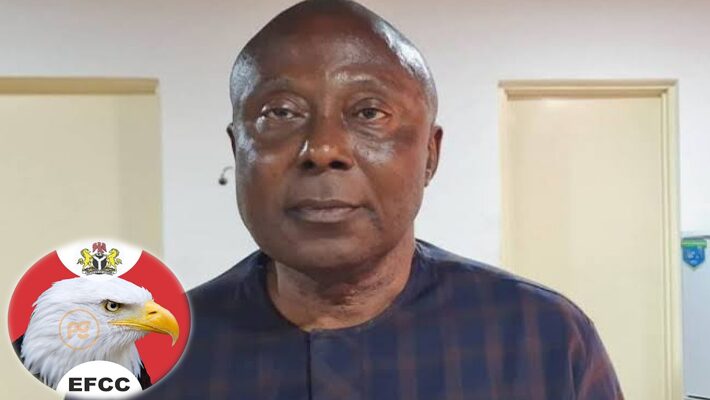- Investors Bail Out of Oil Stocks, Seek Stability
The stocks of the oil and gas sector of the Nigerian Stock Exchange tumbled on Thursday as Oando Plc and Japaul Oil and Maritime Services Plc witnessed sell-offs by investors.
In recent weeks, investors have been pulling their money out of stocks that seem unstable and have been buying into those that tend to have smaller swings in price than the rest of the market.
According to findings, the investor behaviour can be attributed to the growing fears and uncertainties about the 2019 polls, as well as shaky investor sentiments.
At the end of trading on the floor of the Exchange on Thursday, the Oil and Gas sector emerged the lone loser as it declined by 0.4 per cent.
The All Share Index, which plunged by 0.78 per cent on Wednesday due to major losses recorded in the banking and industrial sectors, gained a marginal 0.05 per cent on Thursday.
Sixteen gainers emerged at the end of trading on Thursday, against 13 losers.
The volume of stocks traded increased by 183 per cent to close at 672.560 million, while the value of transactions grew by 334 per cent to settle at N15.215bn.
Forte Oil Plc was the only oil and gas stock that appreciated as its share price increased by 1.05 per cent to close at N19.20.
Japaul Oil and Oando were the 6th and 8th losers, respectively, on the losers table of Thursday’s trading.
Ikeja Hotel Plc was the highest loser, leading the losers’ table with a 9.76 per cent share price decline, which closed at N1.85, while its year-to-date return settled at +3.93 per cent.
The market breadth strengthened to 1.2x from 0.4x recorded in the last trading session.
Three of the five indices closed southwards while the banking index gained the most, appreciating by 0.2 per cent following interests in Zenith Bank Plc and Guaranty Trust Bank Plc.
Similarly, the consumer goods index appreciated by 0.1 per cent, following gains in Flour Mills Nigeria Plc and P Z Cussons Nigeria Plc, while the insurance and industrial indices stayed flat despite gains in Lasaco Assurance Plc.
The top five losers were Ikeja Hotel, Jaiz Bank Plc, Law Union and Rock Insurance Plc, A.G. Leventis Nigeria Plc and Wema Bank Plc.
Jaiz Bank’s share price declined by 8.89 per cent to close at 41 kobo, while its year-to-date return settled at -34.92 per cent.
Law Union and Rock, whose year-to-date return settled at -32.47 per cent, saw its share price decline by 8.77 per cent to close at 52 kobo.
An 8.33 per cent decline was recorded in the share price of A.G. Leventis as it closed at 33 kobo per share, while its year-to-date return settled at -52.86 per cent.
Wema Bank’s share price, recording a 5.36 per cent decline, dropped to 53 kobo per share as its year-to-date return settled at +1.92 per cent.
The top five gainers were Flour Mills, Union Diagnostic and Clinical Services Plc, PZ Cussons, Prestige Assurance Plc and Lasaco Assurance.
Analysts at Afrinvest Securities Limited said on account of Thursday’s mild rebound, they were expecting to see more bargain hunting activities in Friday’s (today) trading session.
“We, however, maintain our bearish outlook over the near term,” the analysts added.


 Naira4 weeks ago
Naira4 weeks ago
 News3 weeks ago
News3 weeks ago
 Education4 weeks ago
Education4 weeks ago
 Social Media4 weeks ago
Social Media4 weeks ago
 Economy4 weeks ago
Economy4 weeks ago
 Investment4 weeks ago
Investment4 weeks ago
 Dividends4 weeks ago
Dividends4 weeks ago
 Business3 weeks ago
Business3 weeks ago
























